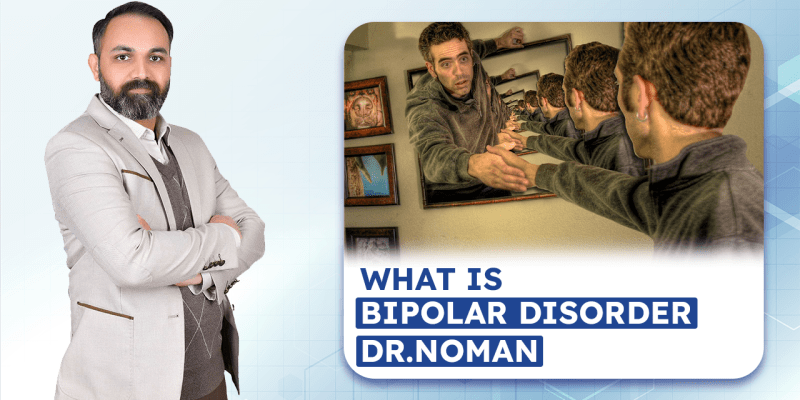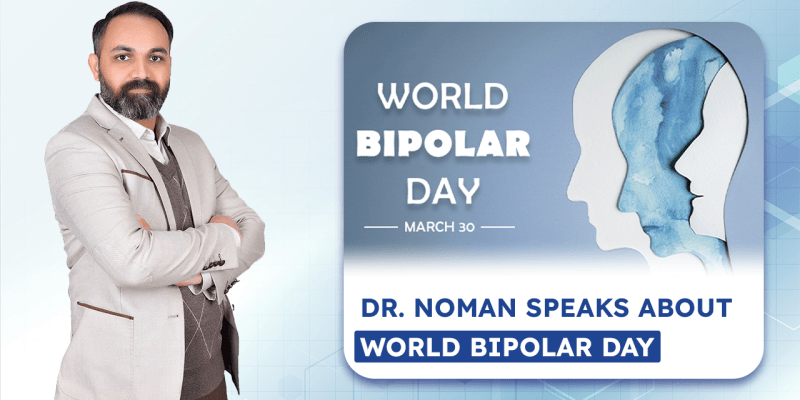Bipolar Disorder
A brain illness called bipolar disorder alters a person's energy, mood, and capacity for function. Bipolar illness patients go through severe emotional bouts, or mood episodes, that normally last a few days to a few weeks. These mood swings might be classified as depressed or manic/hypomanic (an unusually cheerful or irritated mood) (or sad mood). Most people with bipolar illness also have times of neutral mood. People with bipolar illness can live long and productive lives when properly treated.
Manic episode
A manic episode is a time of at least a week during which a person has more energy than normal, is very elated or agitated most of the time, and exhibits at least 3 of the behavioral changes listed below:
Reduced need for sleep as evidenced by the sense of energy while getting substantially less sleep than normal
Larger or more rapid speaking
When speaking has erratic or uncontrollably rushing thoughts or changes subjects fast.
Distractibility
heightened activity (e.g. restlessness
working on several projects at once)
higher risk-taking behavior (e.g. reckless driving - spending sprees)
An episode of Major Depression
A severe depressive episode occurs when a person exhibits at least five of the symptoms listed below (including at least one of the initial two symptoms) for a minimum of two weeks
Extreme melancholy or despair
Lack of interest in once-enjoyed hobbies; feelings of shame or unworthiness
Fatigue
Either more or less sleep
Changing or decreasing one's appetite
Pacing or agitation or delayed speech or movement
Difficulty paying attention
Recurring suicidal or dead thoughts




